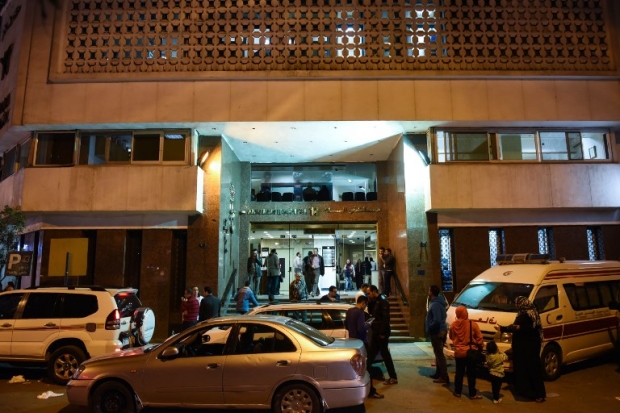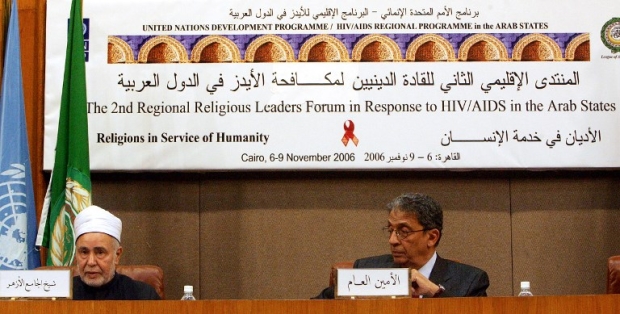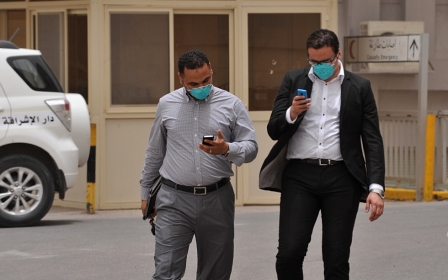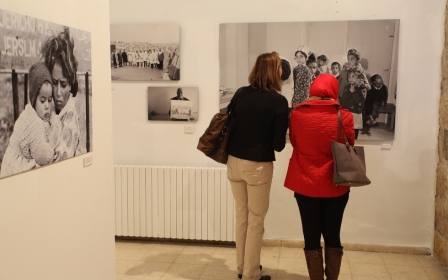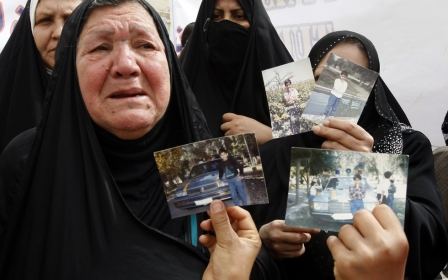'A wake-up call': UN sends warning over loss of HIV funds for Egypt
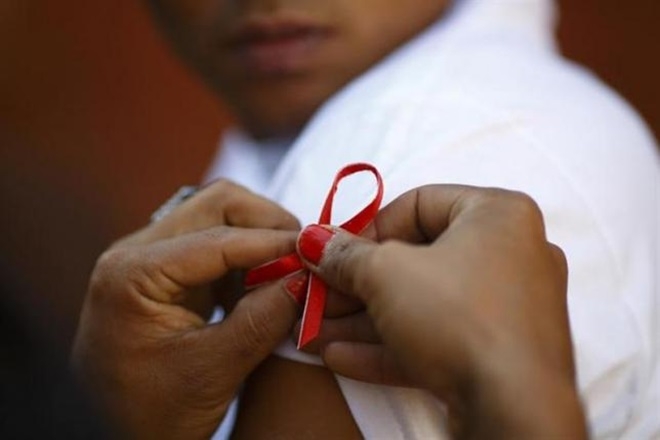
Egypt faces an unprecedented health crisis as funding for AIDS prevention work expires in a couple of weeks amid a rising epidemic in the country.
“All funds directed towards HIV prevention efforts and projects in Egypt are expiring by the end of this year,” Egypt director of UNAIDS, Ahmed Khamis, told Middle East Eye.
The Egyptian government provides free healthcare for anyone who has contracted the HIV virus. But aid from international organisations is the key funding source for HIV/AIDS prevention, putting the country’s efforts to fight the virus in jeopardy.
“The impact will be felt directly by local NGOs working in the field, most of which will have to close down,” said Khamis’s UNAIDS, which is a UN agency focusing on advocacy and awareness-raising projects carried out in partnership with youth-led and civil society organisations as well as the Egyptian ministry of health.
The complacency and reluctance [of investors] to dedicate funds towards HIV prevention could hinder the progress we’ve achieved in containing the virus
- Ahmed Khamis, Egypt director of UNAIDS
"This will in turn affect prevention efforts throughout Egypt quite drastically," Khamis added.
UNAIDS says there are over 11,000 cases in Egypt, while the country’s health ministry estimates the figure to be around 7,000. But while the number of HIV cases in Egypt remains relatively low, there has been a sharp rise in detected cases, says UNICEF.
The Middle East-North Africa region is one of the only two regions in the world were the pace of infection is increasing, along with Eastern Europe-Central Asia.
Earlier this month, the UN voiced alarm over the spread of HIV in Egypt, where the number of new cases is growing by up to 40 percent annually, reported the Washington Post on 4 December.
“There is a 25-30 percent increase in incidents every year... It’s alarming to us because of the growth of the epidemic and the discontinuation of interest from donors in funding,” Khamis said.
Although part of the increase in detected cases can be attributed to enhanced HIV testing, the figures indicate that Millennium Development Goals of reversing the spread of HIV have not been met and are now less likely to be met soon.
“The complacency and reluctance [of investors] to dedicate funds towards HIV prevention could hinder the progress we’ve achieved in containing the virus,” said Khamis.
Global apathy
The issue is not limited to Egypt. The reduction of donor investment in HIV prevention has become a global phenomenon in recent years, leaving many countries affected by the epidemic calling out for help.
Earlier this year, Vietnam flagged up that it too was running into financial obstacles as aid from international organisations is running out.
While the Sustainable Development Goals aimed to end the AIDS epidemic by 2030, UNAIDS estimated in a 2016 report that reaching that target would require $26.2bn in funding for low- and middle-income countries by 2020 - estimated to be the peak year of investment. That is $7bn more than was available in 2014.
We are facing a real crisis. Many local organisations will likely have to close down
- Nasser Hesham, director of Roaya
Meanwhile, donors reduced their investments by more than $1bn in 2015 as compared with 2014, according to a 2016 joint report from the Kaiser Family Foundation and UNAIDS, encouraging middle-income countries to take more responsibility for their own epidemics.
But officials in many of those countries say they can’t. According to the Kaiser Foundation and UNAIDS report, domestic spending already made up 57 percent of total resources in 2015, or $10.9bn.
In Egypt, Nasser Hesham, director of Roaya, an Egyptian NGO that works to raise awareness about HIV, told MEE that local organisations now fear they will have to close down.
“We’ve never been in this situation before. Whenever one source of funding ran out, another one came through which allowed us to keep our work going at all times,” Hesham told MEE.
This should come as a wake-up call for the international community because it is our collective responsibility to invest in HIV prevention in Egypt
- Ahmed Khamis, Egypt director of UNAIDS
“We are facing a real crisis. Many local organisations will likely have to close down as we cannot afford to pay our employees or run the activities and campaigns we have been doing for years.”
Among the most significant foundations that fund HIV/AIDS community work in Egypt are the Ford Foundation and the Gates Foundation.
Both organisations were contacted by MEE but had not replied by the time this report was published.
Fighting stigma
Roaya, founded in 2012, sets up awareness-raising projects about conception and prevention, supports HIV patients and campaigns to fight stigma.
According to Hesham, the shame attached to having AIDS is one of the main issues causing the virus to continue to spread. Without the funding to support stigma-eradication efforts, the problem will only grow.
“One of the greatest challenges we face in fighting the virus is the stigma attached to it. People who may have contracted the disease are afraid to get diagnosed and treated because they worry that their reputation will be tainted,” he said.
While the virus can spread through infected syringes, blood transfusions and from women to their babies at birth or through breast-feeding, figures for these ways of transmitting the virus are all below five percent in Egypt, reported UNICEF.
Instead, 71 percent of HIV transmission in the country occurs sexually, with heterosexual transmission representing almost half of all detected cases.
One of the greatest challenges we face in fighting the disease is the stigma attached to it
- Nasser Hesham, Roaya
Because the virus is strongly linked in the public's mind to homosexuality, which is profoundly taboo in Egypt and regarded as a lifestyle choice, the shame attached to HIV is compounded.
Ahmed was diagnosed with AIDS several years ago. “The first thing people ask me is ‘How did you get it?’," he said in an interview with Alaraby, while recounting that even his doctor had initially refused to treat him.
Many people incorrectly believe that HIV can be contracted through touch.
This stigma not only impacts lay people in the community, it also influences the provision of healthcare services, with nurses and doctors sometimes reluctant to deal with and treat HIV patients.
“An important aspect of our work is with healthcare providers to help overcome the issue of stigma in healthcare settings which is a big challenge in Egypt,” Khamis told MEE.
“A person with HIV can be denied services in a private or public hospital although the Ministry of Health provide healthcare kits. But many healthcare professionals still do not want to treat infected people normally.”
Calling on the international community to continue to fund these efforts, Khamis said: “This should come as a wake-up call for the international community because it is our collective responsibility to invest in HIV prevention in Egypt.”
New MEE newsletter: Jerusalem Dispatch
Sign up to get the latest insights and analysis on Israel-Palestine, alongside Turkey Unpacked and other MEE newsletters
Middle East Eye delivers independent and unrivalled coverage and analysis of the Middle East, North Africa and beyond. To learn more about republishing this content and the associated fees, please fill out this form. More about MEE can be found here.


